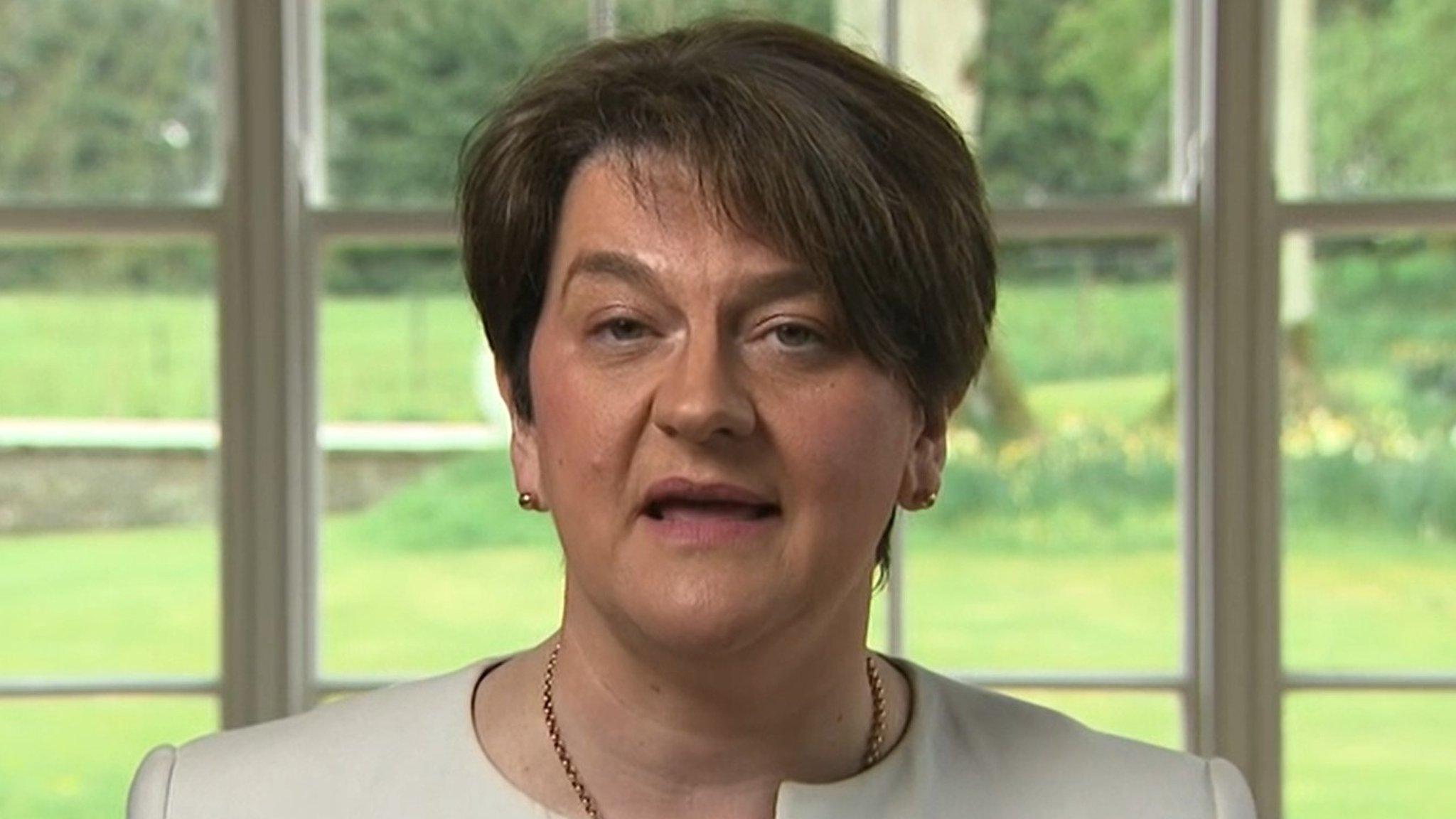DUP leadership: Counting of votes begins after voting ends
- Published
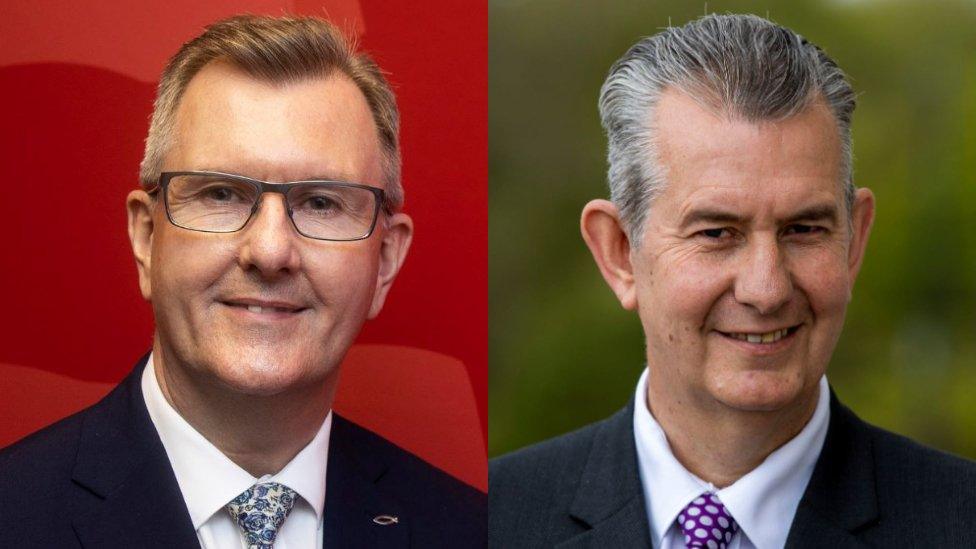
In the running for party leader - Sir Jeffrey Donaldson and Edwin Poots
Counting of votes has now started to elect the next leader of the Democratic Unionist Party (DUP).
Northern Ireland's Agriculture Minister Edwin Poots and Lagan Valley MP Sir Jeffrey Donaldson are bidding to succeed Arlene Foster.
She steps down as DUP leader on 28 May and will then leave her role as NI first minister at the end of June.
It is the first time in the party's 50-year history that a leadership contest has taken place.
Only three people have held the role of DUP leader since the party was established in 1971 - its founder the late Ian Paisley, followed by Peter Robinson and its current leader, Arlene Foster.
A secret party ballot of party MPs and NI Assembly members was held on Friday. The announcement on the next leader is expected at about 17:00 BST, the party has said.
A new deputy leader will also be elected after incumbent Lord Dodds announced he would not bid for re-election.
Who are the candidates?
Mr Poots became an MLA (Member of the Legislative Assembly) for the Lagan Valley constituency in 1998 and has also served on Lisburn City Council.
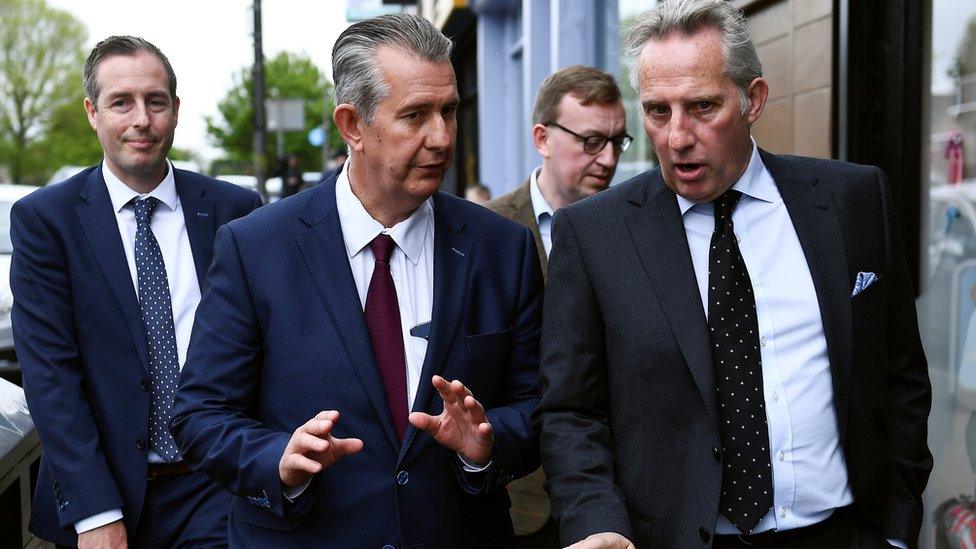
Edwin Poots talks to MP Ian Paisley outside DUP headquarters on Friday
He has served as Northern Ireland minister for the environment, minister for arts, culture and leisure and as health minister over the course of his political career.
He has said he would like to remain as agriculture minister and would not take on the role of Northern Ireland first minister if elected party leader.
In a message to MPs and Northern Ireland Assembly members, Mr Poots said that leading the DUP "would be my greatest honour".
He said he had been "tried and tested over many years in political office" and had a plan to "reinvigorate unionism".
Leaving DUP headquarters on Friday afternoon, he said it was a "good day for democracy".
MP Ian Paisley, who is backing Mr Poots, said it was a "really good day" for the DUP.
"This is a democratic decision. At last, the elected members are deciding who their leader is," he said.
"That's a very, very important decision."
Mr Poots is facing stiff competition for the leadership from Sir Jeffrey Donaldson, who has been the MP for Lagan Valley since 1997.
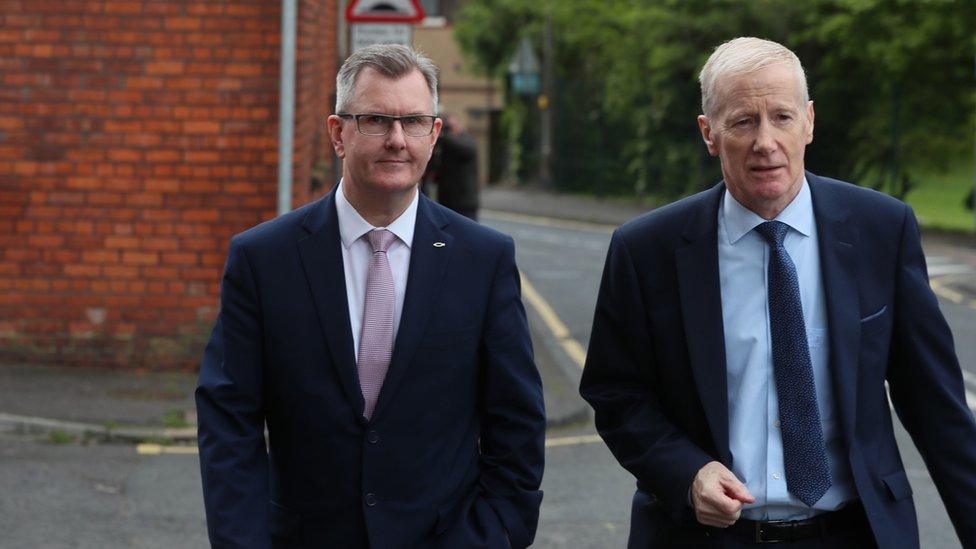
Sir Jeffrey Donaldson and Gregory Campbell leaving DUP headquarters on Friday
At that time he was an Ulster Unionist Party (UUP) member but was one of several politicians who defected to the DUP in 2004 after a dispute over the 1998 Good Friday Agreement peace deal.
On Thursday, Sir Jeffrey told DUP assembly members and MPs that he will contest the next assembly election and serve as first minister if elected.
"If elected leader, I will not be leading remotely from Westminster. I will be on the ground and intend to fight the next assembly election so that I can be based here," he said.
"I would take on the role of first minister as I believe that our people not only want a leader of unionism, they want a leader for Northern Ireland."
On Friday outside DUP headquarters, Sir Jeffrey said he was "feeling good", when questioned by waiting reporters.
MP Jim Shannon, who is backing Sir Jeffrey, said the latter had "statesman-like qualities".
"I feel that Jeffrey has the qualities that take him beyond Northern Ireland and across the mainland and maybe further afield," he said.
"I think those are statesman-like qualities which the party needs."
Both Mr Poots and Sir Jeffrey not only represent the constituency of Lagan Valley, but also work out of the same office building.
There were three candidates in the running to be deputy leader - East Londonderry MP Gregory Campbell and MLAs Paul Frew, of North Antrim, and Paula Bradley, of North Belfast.
However, it is understood Mr Frew, who is also Mr Poots' campaign manager, pulled out of the race on Friday. It is not clear who he is supporting.
After casting her vote, outgoing leader Mrs Foster said she voted for the person who "would bring the Democratic Unionist Party forward".
"And I think that's very obvious," she added.
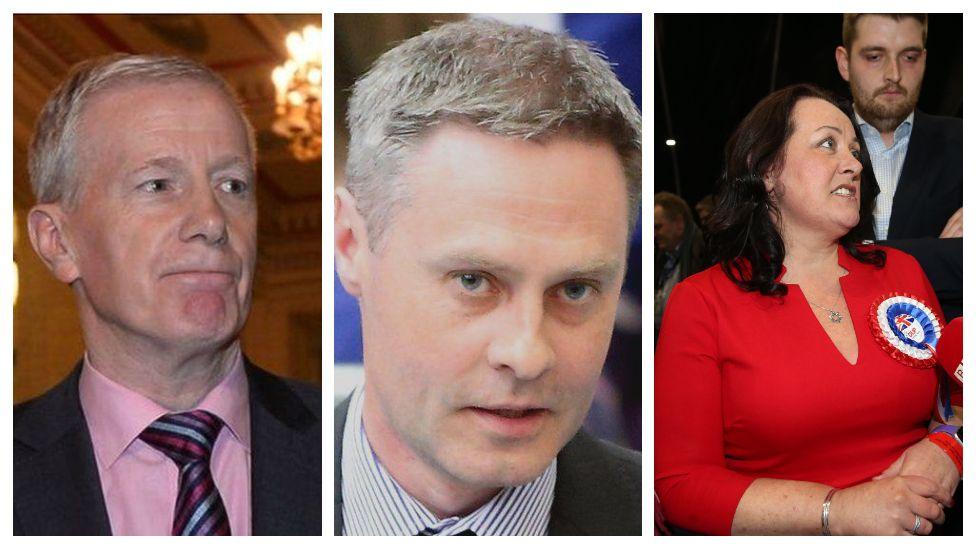
MP Gregory Campbell (left) and MLA Paula Bradley (right) are running for the DUP deputy leader post. MLA Paul Frew (centre) pulled out of the race on Friday
Who can elect the new leadership?
Only DUP members elected to the House of Commons and the Northern Ireland Assembly get to vote in a leadership election, according to party rules.
There are 28 MLAs - including Mrs Foster - and eight MPs, who make up the electoral college.
In order to become party leader, the winning candidate must secure the support of at least 19 of the party's MLAs and MPs.
Each leadership candidate spoke to party members with a vote for 10 minutes on Friday morning, and each deputy leader contender spoke for five minutes.


The DUP headquarters is an unassuming building, bar the trail of MPs and MLAs making their way inside. It looks to most, like a meeting hall.
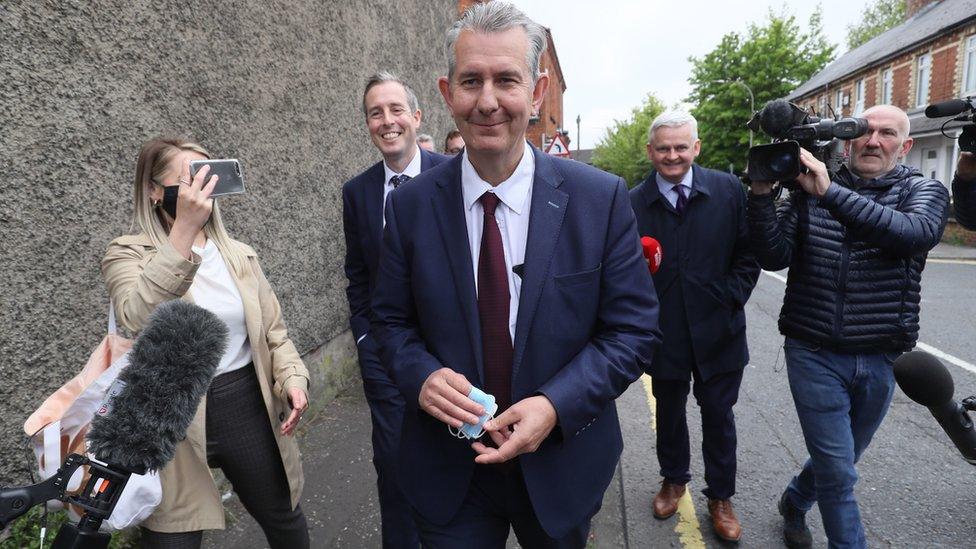
Edwin Poots smiles as he leaves DUP headquarters on Friday
The leadership contenders arrive early to avoid the media, ahead of making their final pitch to the electoral college, virtually due to Covid guidelines.
Media stationed outside are unsure which door the politicians are going to enter at, with several entrances it's become a bit of a guessing game.
People passing by the building, though, seem unfazed by the unprecedented election taking place within its walls.
MPs and MLAs began arriving in a staggered fashion to cast their ballot - crucially in secret, with only 36 eligible voters.
Gavin Robinson - in Team Sir Jeffrey - was the first to leave after voting, but when asked about it, he merely gave a thumbs up.

Last-minute canvassing
Both men have been campaigning right up to the last minute with videos and messages being sent to all party members who are eligible to vote in the leadership election.
Sir Jeffrey wrote to DUP MLAs and MPs on Thursday night, presenting them with the results of a poll conducted on behalf of his campaign, which appeared to suggest he would have a broader electoral appeal than his competitor.
The results were released internally within the DUP, but BBC News NI political correspondent Stephen Walker obtained a copy and reported the results on The View on Thursday night.
When asked who was the best choice for DUP leader, 75% of respondents who indicated a preference favoured Sir Jeffrey for the role.
Mr Poots' team highlighted the size of the survey sample - 500 people - and pointed out that there was no clarity on who took part in the poll or the political background of the respondents.
They also said that in their view, the real poll on Sir Jeffrey's electoral appeal was the MP's performance in the last general election, when the DUP's overall majority in Lagan Valley fell from 19,000 to 6,000 and the party lost 16% of the vote share.
Mr Poots meanwhile, also sent party members an eve of poll letter, highlighting his ministerial experience at Stormont.
He also sent a video to the DUP's electoral college, in which he talked about joining the party when he was 16 and said his greatest passion was working for the people of Northern Ireland
Moving on
Mrs Foster announced her decision to resign after facing a revolt from DUP members.
She had led the party since December 2015 and was appointed first minister of Northern Ireland the following month.
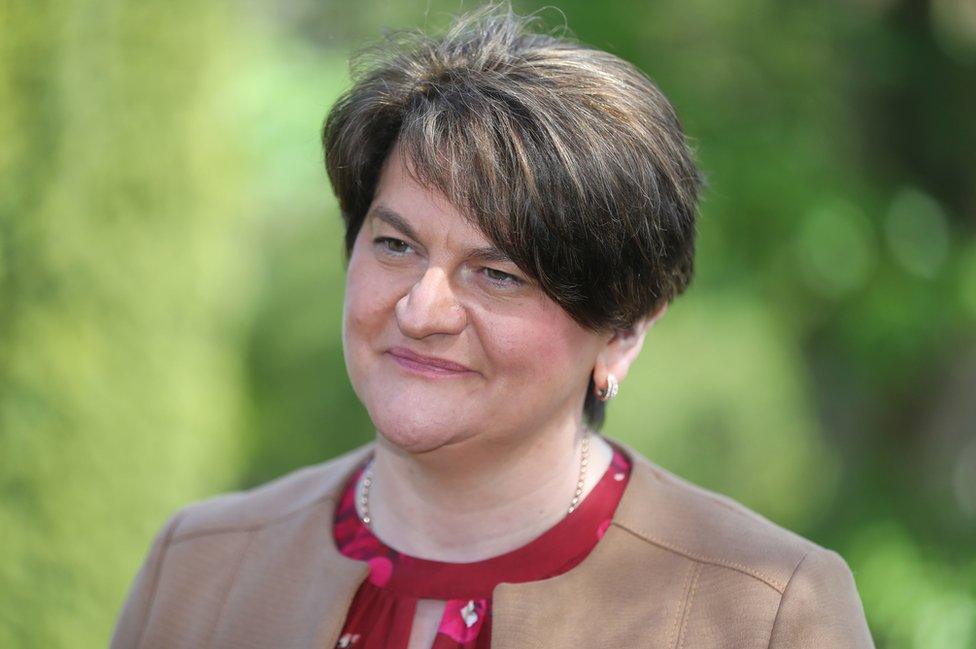
Arlene Foster will step down as DUP leader on 28 May
BBC News NI understands that she will sever her ties with the DUP when she stands down as first minister.
Sources close to her said she thinks it is no longer the party she joined.
- Published14 May 2021
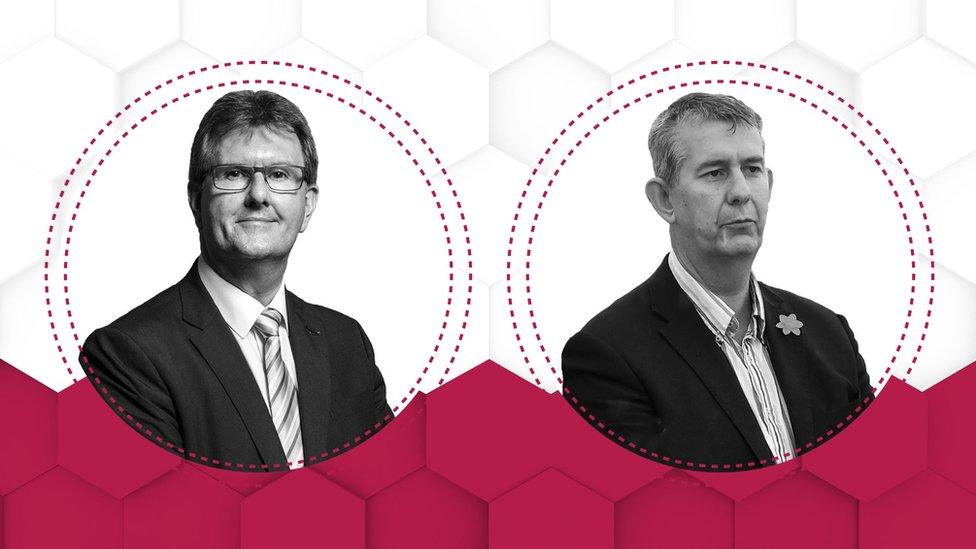
- Published14 May 2021
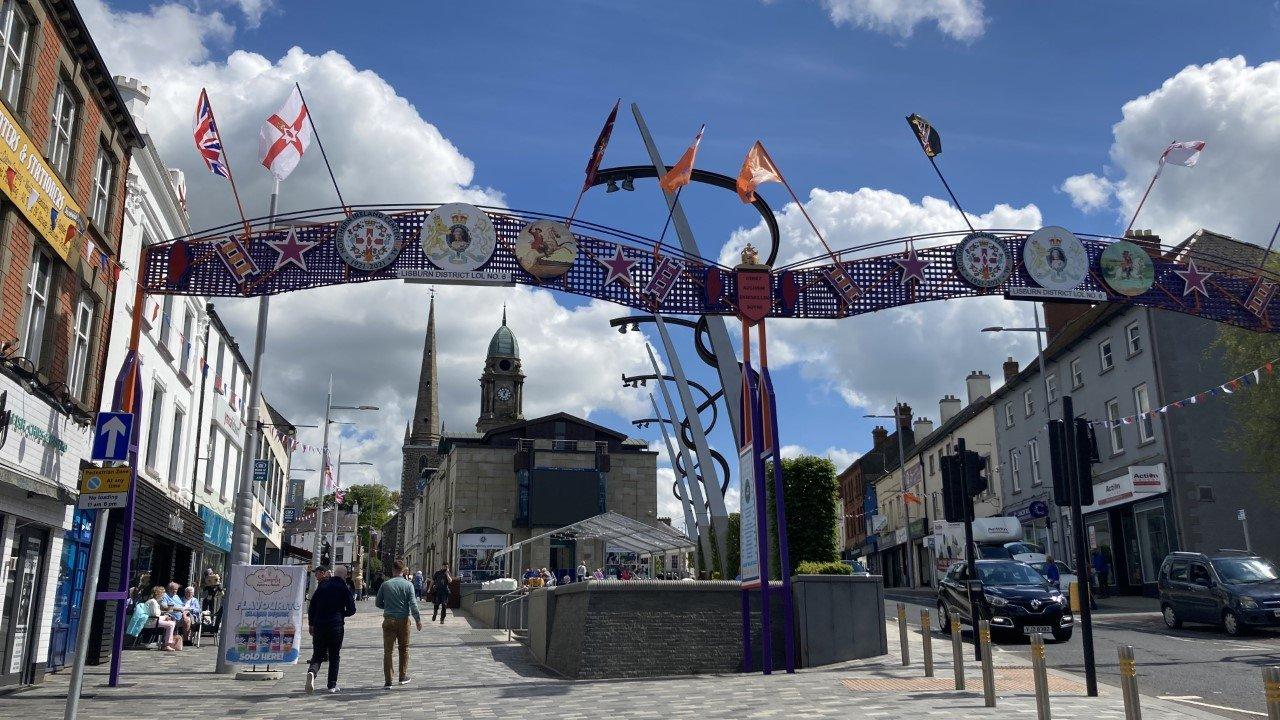
- Published3 May 2021
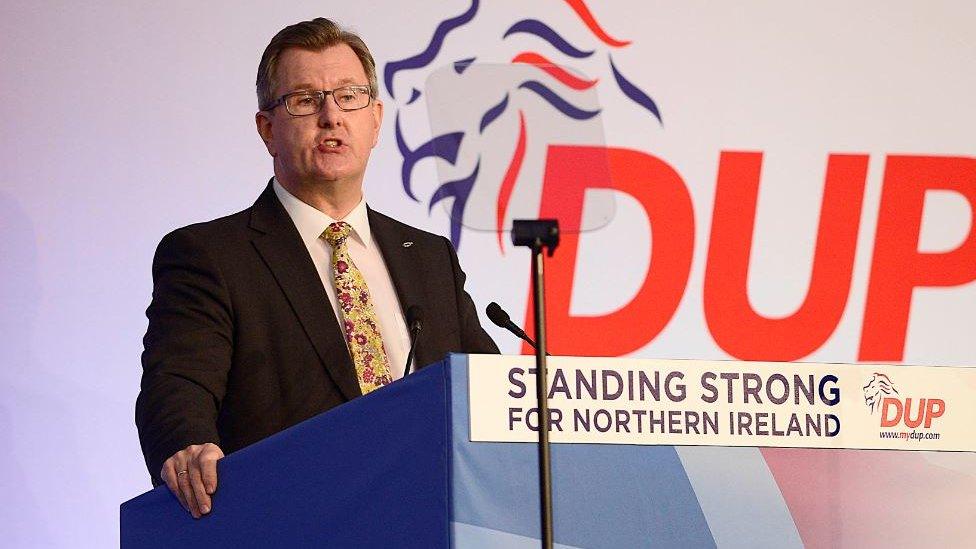
- Published29 April 2021
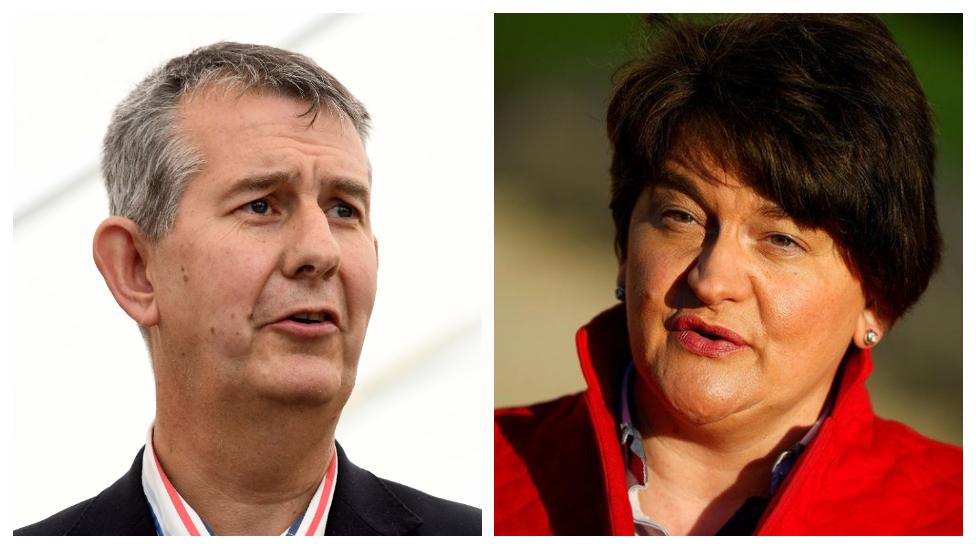
- Published28 April 2021
